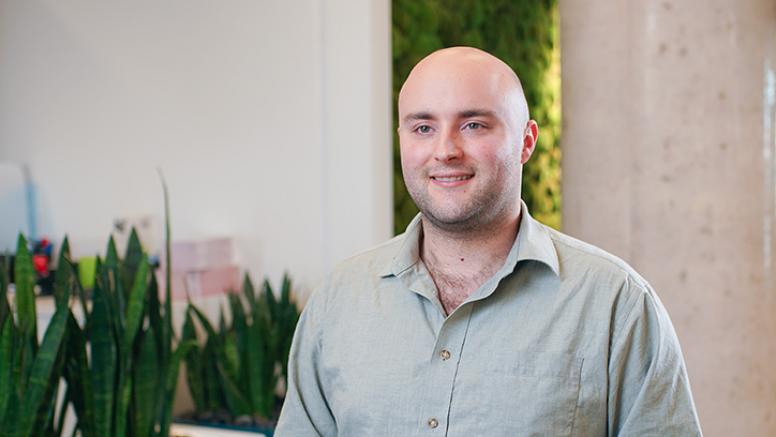Adam Dixon – Phytoponics
Adam Dixon is a young entrepreneur who has turned his hobby into a £2M business.

Adam Dixon first became interested in hydroponics – the process of growing plants without soil – in his early teens. This involved him nurturing lots of plants, experimenting with growing conditions and generally getting his hands dirty whenever he got the chance. Fast forward ten and bit years and – following a degree in Mechanical Engineering and a Masters in Engineering Design – Adam is now CEO at Phytoponics, a company he co-founded after inventing a game-changing hydroponics system aimed at large-scale commercial growers.
As a self-confessed inventor, Adam has never lacked ideas. Like most inventors though, the ideas always came more easily than figuring out how to bring them to market. In this respect, a key moment in Adam’s journey came while he was freelancing as content writer to support his studies. Adam explains, “A start-up tech firm hired me and while I was working on their sales strategy, it suddenly dawned on me that I was capable of commercialising my own inventions. That realisation helped me get to where I am today.”
Adam co-founded Phytoponics with two other young entrepreneurs while he was studying for his Masters at Cardiff University. The three of them were thrust in at the deep end, and Adam admits the early days presented an extremely steep learning curve. But they stayed focussed and the breakthrough came when the start-up won a few awards and got selected for an accelerator programme, something Adam says was critical to developing the business and making new contacts. The company’s first client followed soon after, and things have gone so well since that Phytoponics is now valued at £2M.
Adam’s experience as an entrepreneur has opened his eyes to the art of entrepreneurship, and he believes young Wales-based entrepreneurs need more support in the area of risk management in particular to reach their full potential. He explains, “For an entrepreneur to be successful, they need to actively work towards reducing risk. For example, there is initially high-risk during research and development – but that risk is then mitigated when a product is developed. It’s difficult to find expert advice on risk management, and early-stage entrepreneurs would benefit tremendously from this.”
With the arrival of BeTheSpark this is a now a very real possibility, and Adam is excited about the programme’s potential. “Be The Spark is a great platform,” he says. “As it has an international footprint, I’m hopeful it will inject learnings from the most advanced economies all over the world and ultimately help Wales reach the next level.”